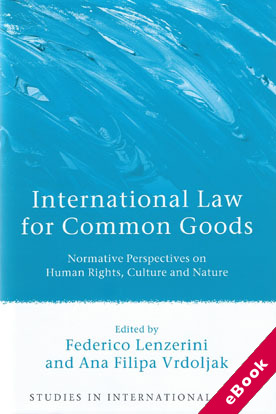
The device(s) you use to access the eBook content must be authorized with an Adobe ID before you download the product otherwise it will fail to register correctly.
For further information see https://www.wildy.com/ebook-formats
Once the order is confirmed an automated e-mail will be sent to you to allow you to download the eBook.
All eBooks are supplied firm sale and cannot be returned. If you believe there is a fault with your eBook then contact us on ebooks@wildy.com and we will help in resolving the issue. This does not affect your statutory rights.
International law has long been dominated by the state. But it has become apparent that this bias is unrealistic and untenable in the contemporary world where the rise of the notion of common goods challenges this dominance.
These common goods - typically values (like human rights, rule of law, etc) or common domains (the environment, cultural heritage, space, etc) - speak to an emergent international community beyond the society of states and the attendant rights and obligations of non-state actors.
This book details how three key areas of international law - human rights, culture and the environment - are pushing the boundaries in this field. Each category is of current and ongoing significance in legal and public discourse, as illustrated by the Syrian conflict (human rights and international humanitarian law), the destruction of mausoleums and manuscripts in Mali (cultural heritage), and the Deepwater Horizon oil spill (the environment).
Each exemplifies the need to move beyond a state-focused idea of international law. This timely volume explores how the idea of common goods, in which rights and obligations extend to individuals, groups and the international community, offers one such avenue and reflects on its transformative impact on international law.